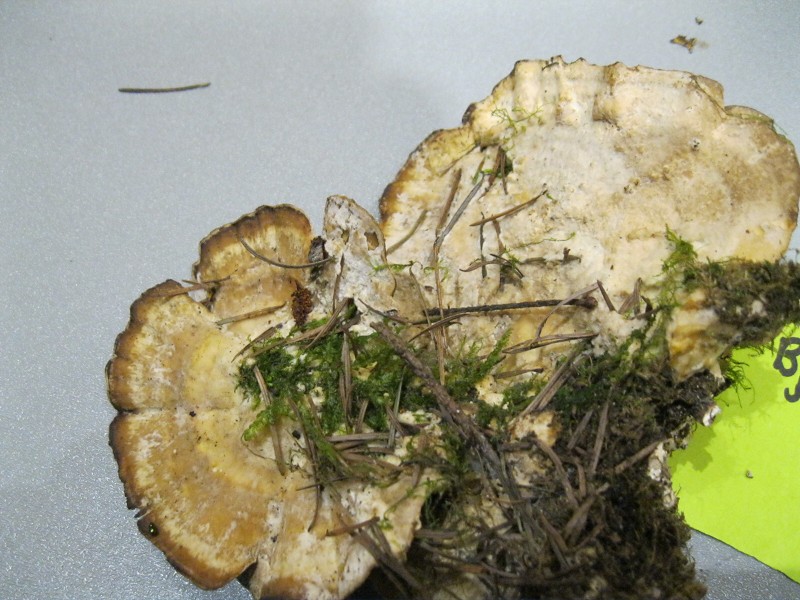
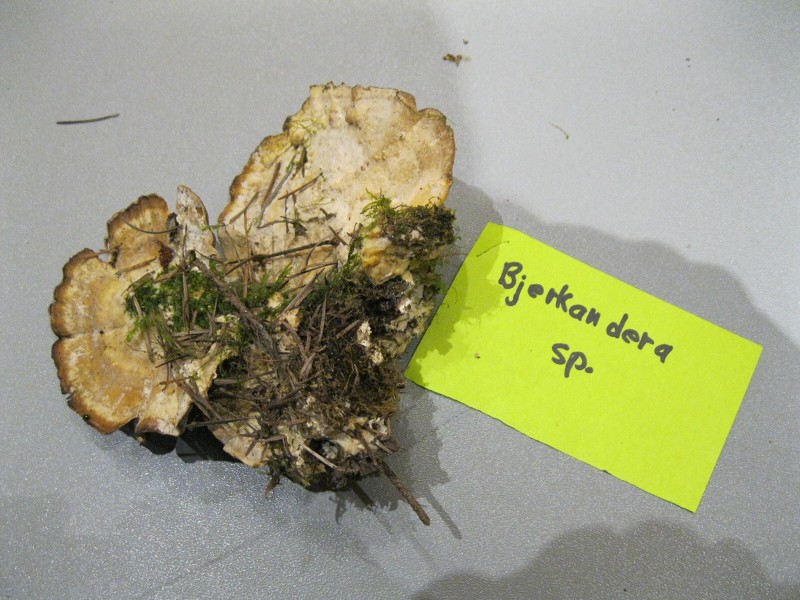
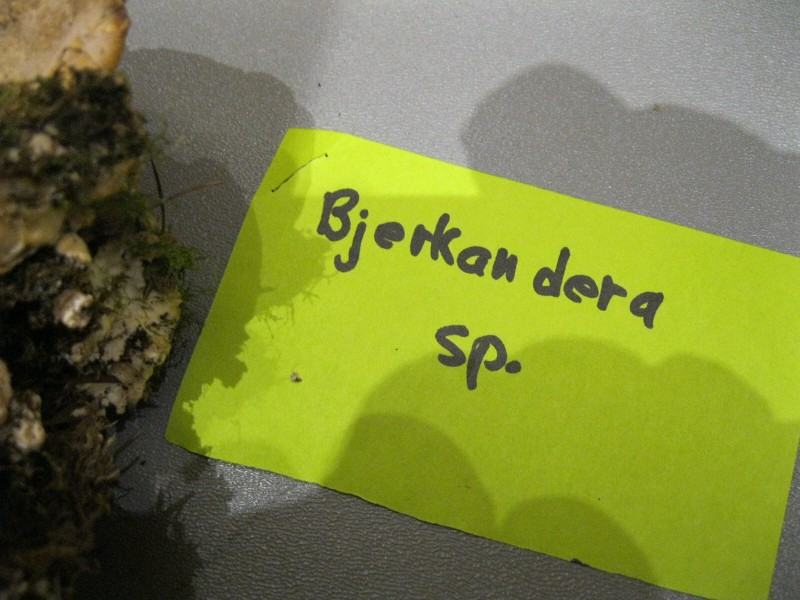
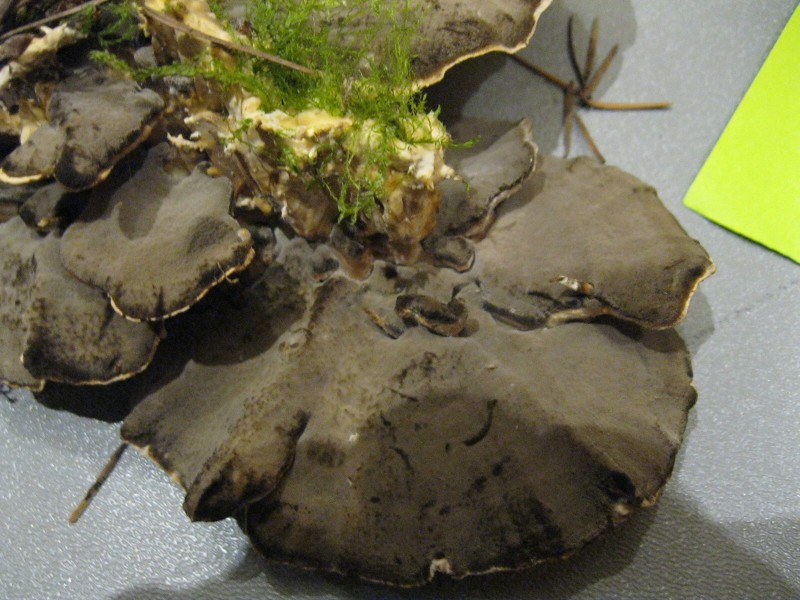
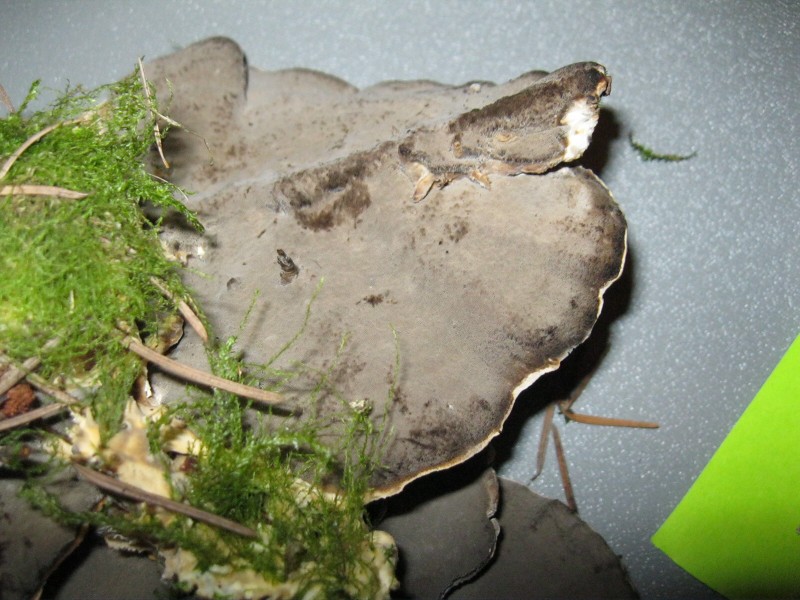
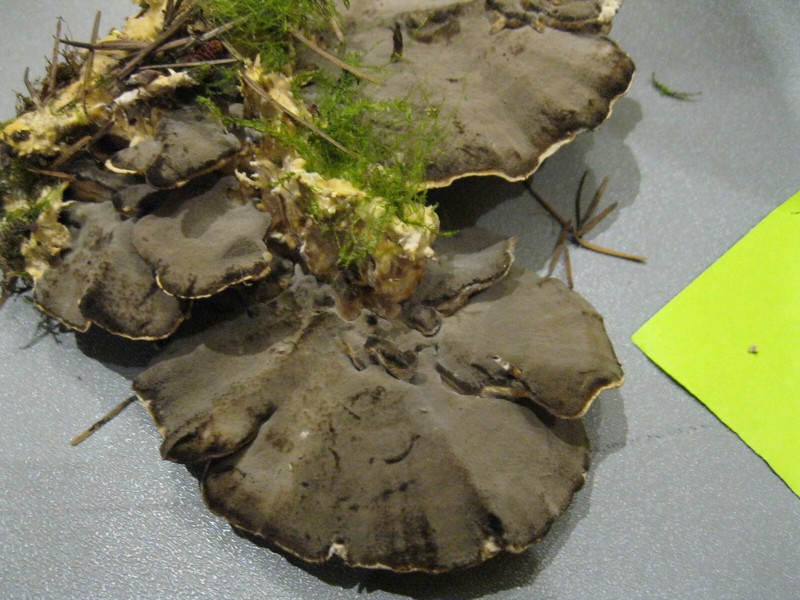
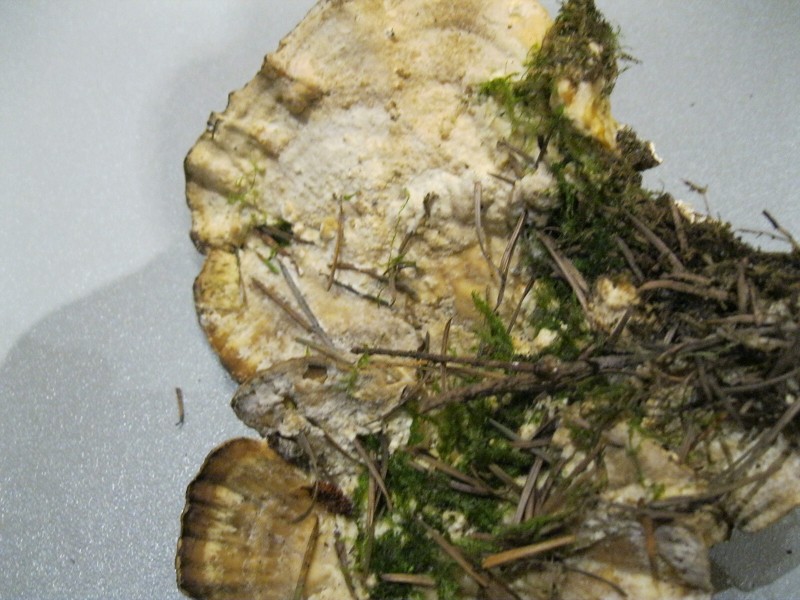
A stalkless bracket fungus are 3 to 10 cm across with a brown upper surface and a distinctive grey porous underside,
Genome.jgi-psf/org says:
The remarkable oxidation potential of the secreted peroxidases has attracted
considerable attention and, in addition to plant cell wall deconstruction,
B. adusta has shown considerable promise in the degradation of a wide range of environmental pollutants.
Bjerkandera adusta is a widely distributed wood decay fungus commonly associated
with the decomposition of hardwoods. Microscopic thread-like hyphae colonize and
degrade dead wood, and visually striking shelf-like fruiting bodies often appear on the
surface. During the decay process, all components of the wood cell walls are
degraded including the cellulose, hemicellulose and recalcitrant lignin.
Accordingly, this species is often referred to as a 'white-rot' fungus
and related to other sequenced fungi such as Phanerochaete chrysosporium,
Cerioporiopsis subvermispora, and Trametes versicolor.
Comparative analyses of these species reveal variations in the mechanism(s)
by which lignocellulose is degraded, although it is generally thought that extracellular oxidative
mechanisms play a crucial role in lignin depolymerization.
First-nature.com says:
A very variable small-pored fungus, the Smoky Bracket can occur either as a
resupinate crust on the underside of a fallen branch, as a reflexed bracket on
the side of dead hardwood (or very occasionally on conifer wood),
or even as a rounded cap with a short stem (see small image below)
when growing on the upper surface of dead wood. Despite its shape-shifting capability,
this crust fungus is recognisable by its grey fertile surface.
(NB Some place this species in Hapalopilaceae.)